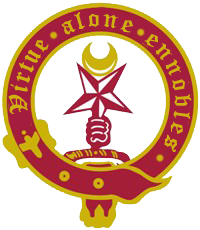Oil Spills: Avoiding Pollution.
From time to time, despite legislations and increased attention to oil-related matters of maritime; we are still facing many incidents of oil spill pollution and hence damage to the sea ecology. Firstly, most oil spills happen due to human error which itself happened due to lack of knowledge from the perspective of crew regarding handling of engine room and on-deck machinery. Alongside human error climate factors may also play a major role in oil pollution as rainfall will contribute to the spread of oil residue across ports; including the sea itself.
Oil pollution, judging from past incidents comes from lack of knowledge from ship crews and port authorities alike where the former fail to notice damages to ship tanks and mooring winches, (damage to hydraulic oil tanks) and thus not reporting an error to higher ranking members while the latter lack knowledge about malfunctions at port. Port authorities and personnel also fail to drain rainwater and skim the oil from the water regularly; leaving the polluted rainwater to enter sea.
While ship mismanagement is still one of the main reasons oil spillage occurs; port mismanagement is nevertheless serious in this matter. Most ports, however lack spill response measures and hence also disregard oil-related matters which involve staining of ship’s hull while berthing. This in-turn leads to the ship sailing to another country and bringing the oil with it; polluting more seas.
It is also worth mentioning that most Russian ports have underground piping that was built years back and poorly maintained; warranting leaks.
The landscape, as derived above is unpredictable as either the port authorities are simply unable to deal with oil pollution or ship crew lack skills and experience so it would be productive to conduct a full risk assessment and brief the crew based on it before docking at port. Risk assessment and briefing will help clarify duties to every crew member regardless of skill and experience as a clear, linear goal would yield better results than a single abstract goal that has many approaches.
Giving each crew member a specific job is more productive than an abstract objective relating to an overall goal such as “avoid oil spills.”
Instead, a possible goal can be “deploy SOPEP equipment into point A where oil has spilled” or “keep piping systems in engine room checked.”
Oil spill drills would also provide virtual experience to the less-experienced personnel and provide a framework to a correct approach to oil spills, with positive and negative aspects highlighted and all errors fixed to avoid serious damage in an actual spill.
Finally, since all matters lead to legal systems and in such circumstances evidence and records play an important role; leading to a proper record-keeping strategy being required. It is common that ships get into conflict with port authorities regarding record books and their writers’ disregard for laws and even presentation of the book itself. As trivial as this will appear, writing errors in books and their removal matters as scratches and correction fluid usage are NOT tolerated; instead a simple line through an error is required. Close attention to laws is obligatory to avoid conflict with port authorities and superiors.
However, even on this front there is a degree of error which involves staff being under-trained to handle such legal matters; warranting even more emphasis on law but from a theoretical standpoint in order to have a fail-safe which is based on a solid theoretical foundation of laws.

